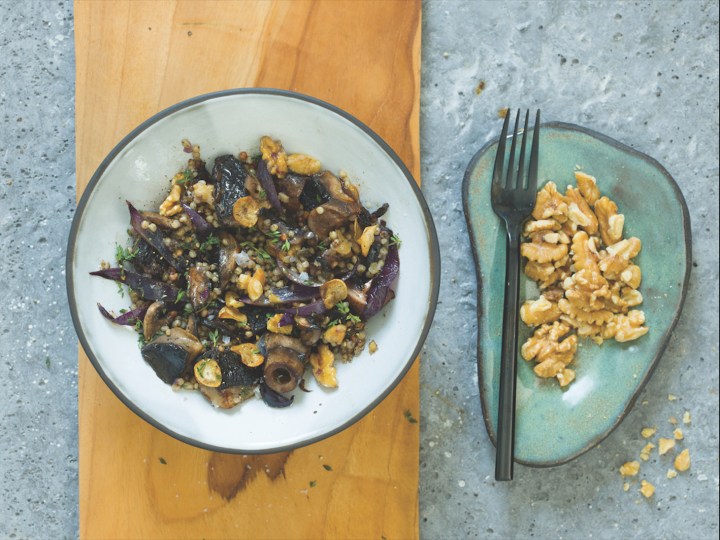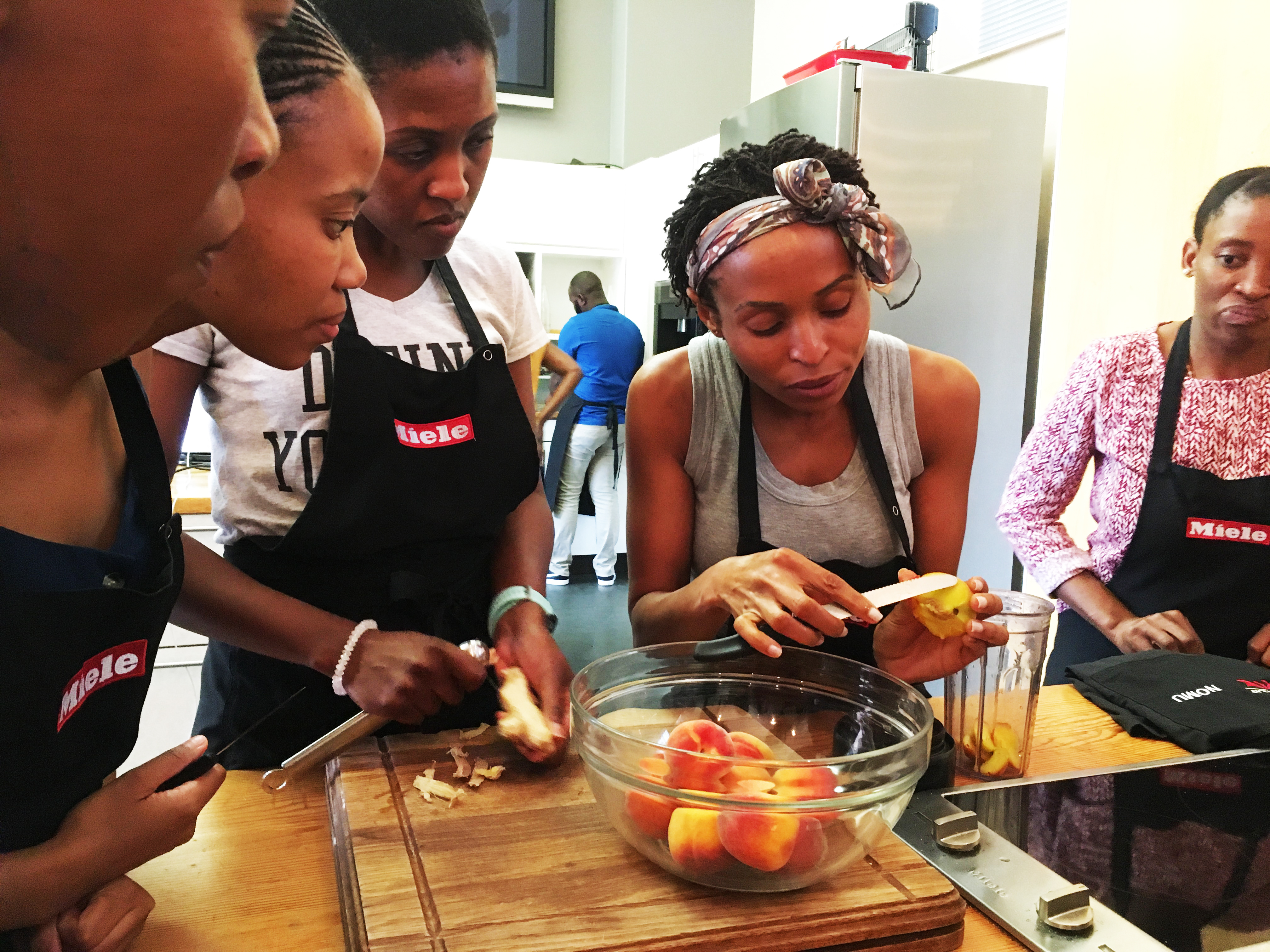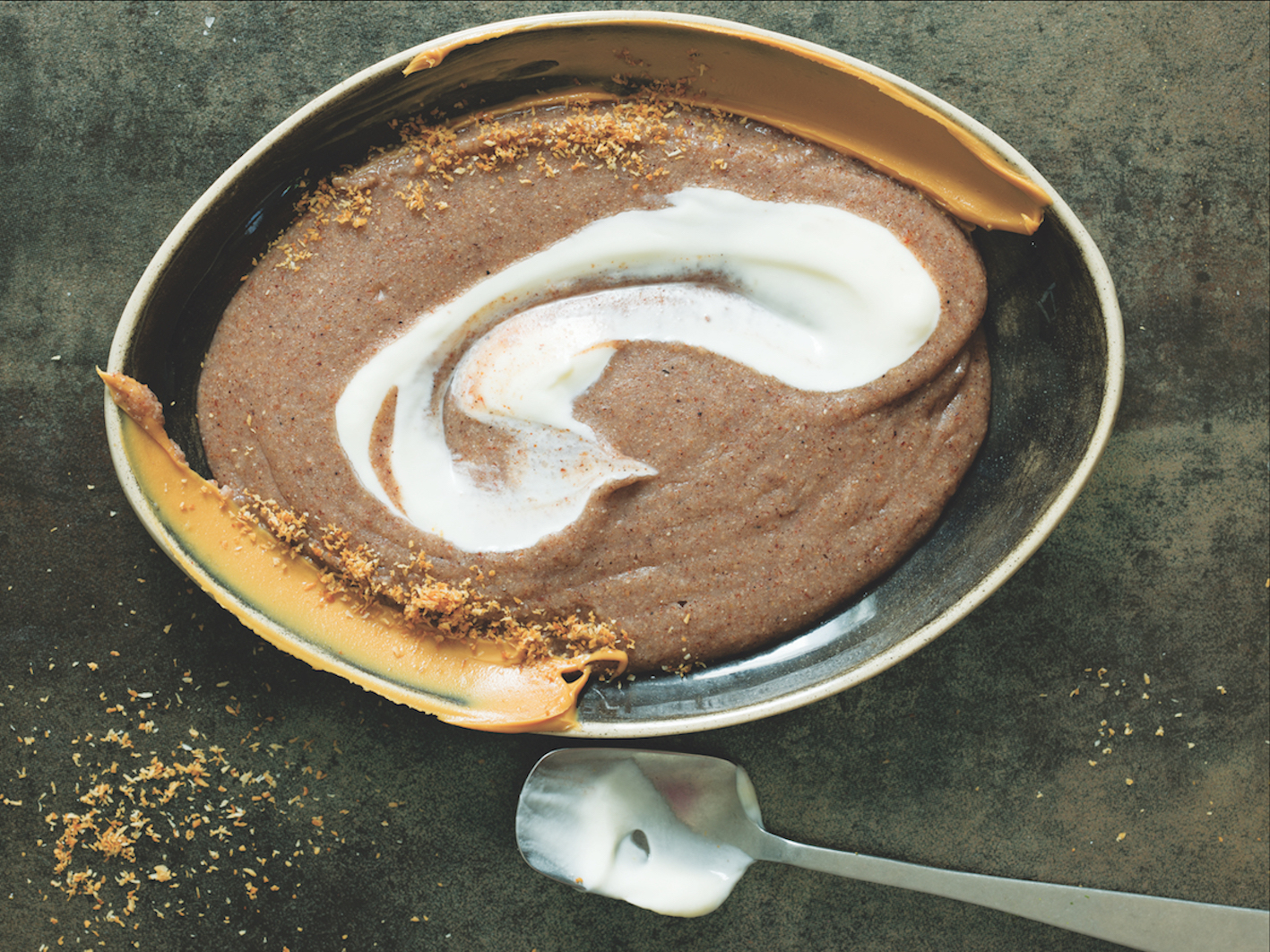EAT TING TRADITION
Ancestral wisdom finds a home in modern cooking

Foodie friends Tracy Nelwamondo and Mpho Tshukudu have launched a culinary medicine masterclass, tapping into ancestral wisdom and the benefits of ancient African grains.
When it comes to breakfast, we tend to follow the trends. Overnight oats is trending? Done. Oh, I should try chia pudding? On it. Really? Coconut yoghurt and hemp seeds? Alright, if you say so…
Eat-Ting with Modern Traditions is the first culinary workshop to introduce indigenous African ingredients as a healthy, sustainable breakfast option. The workshop draws on international food trends like ancient grains, fermenting, and foraging, and connects them to the South African landscape.
“There are no other culinary lessons for African ingredients,” says workshop co-host Tracy Nelwamondo, an indigenous food activist, medical doctor, and founder of the Modern Traditions brand which celebrates heritage ingredients.

Mpho Tshukudu demonstrates how to make fresh peach purée. Photo: Nikita Singh
The workshop is run by Nelwamondo and registered dietician and author Mpho Tshukudu. Her book Eat Ting (co-written with food anthropologist and writer Anna Trapido) addresses modern medical conditions and the effects of the food we consume. “It’s about realising that 80 to 90% of the medical conditions in the world are lifestyle-related. I wanted to find a way to incorporate ancient tastes into modern lives,” says Tshukudu.
Together Nelwamondo and Tshukudu aim to educate consumers on the health benefits of traditional indigenous foods, and how to incorporate them into modern lifestyles and eating patterns.
The cooking classes provide guests with hands-on experience in choosing and preparing indigenous ingredients, and identify the best cooking methods to extract their nutritional value. After a full day of cooking, guests will learn how to ferment, bake, sauté, blanch, and preserve.
“We need to integrate these ingredients in a way that makes sense in the 21st century,” says Nelwamondo. She discovered that clients often buy grains like sorghum and millet but don’t understand how to prepare or cook them. The classes were developed to showcase the simple, practical applications of ancient African ingredients.
The culinary masterclass starts with Africa’s ancient grain, mabele, or sorghum.
In Eat Ting, Tshukudu explains, “Sorghum is an ancient, African, relatively drought-resistant cereal grain. Sorghum can be used as a whole grain, ground into fine or coarse meal and also fermented into sour porridges, beers, and syrups. Unfermented, it has a gentle, slightly sweet taste. Soured sorghum has a satisfying yet subtle tang.”
In the class, Nelwamondo and Tshukudu demonstrate two versions of red sorghum porridge: one fermented (called ting), and one freshly ground. They encourage sorghum fermentation because soaking the grain lowers its glycemic index, which can help keep you fuller for longer.
The porridge is finished with lashings of coconut cream, marula nut butter, and dark muscovado sugar for a creamy and satisfying dessert-like breakfast.

Mabele porridge with coconut cream from Mpho Tshukudu’s book Eat-Ting (Quivertree Publications). Photo: Craig Fraser
Through the course of the day, guests learn how to prepare chicken, and use all parts of the animal (feet included) to make a rich, flavourful stock. They learn to make eggless baobab mayonnaise, a simple green bean salad, and an African version of the European classic: sorghum risotto with mushrooms and walnuts.
The workshop illustrates the versatility of Africa’s dark leafy greens: amaranth and blackjack. They grow abundantly in arid conditions, and many people think of them as weeds, but they are edible and nutritious indigenous plants. Nelwamondo washes the greens, gently sautées them with homemade chicken stock, and adds marula nut butter for a rich, creamy finish.
This African take on creamed spinach is Nelwamondo’s interpretation of healthy eating: “Health needs to be something enjoyable, consistent and sustainable.” Throughout the course, Nelwamondo and Tshukudu encourage “intuitive cooking”: learning how to judge portion size from looking rather than measuring to make cooking a more relaxed, enjoyable, and mindful experience.
Their next workshop, Christmas in Africa, focuses on the use of traditional ingredients in nutritious and healthy holiday meals: food that won’t make you gain 10kg over the holidays, but remains hearty and moreish for a Christmas feast, because “Life is too long to not eat food you enjoy,” says Nelwamondo. DM
The next workshop will be held on 7 December. Follow @mphotshukudu_rd or @wearemoderntraditions to book tickets.





 Become an Insider
Become an Insider